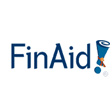 Before You Borrow Private Loans. Make sure you exhaust the following sources of financing before you consider private loans for college:
Before You Borrow Private Loans. Make sure you exhaust the following sources of financing before you consider private loans for college:
Funds You Do Not Have to Repay. Explore federal and state grant programs, like the Pell Grant, as well as scholarships that may be available from state government, private organizations or the school you plan to attend.
Funds You Work to Earn. Consider a part-time or summer job. See if you qualify for work-study programs offered through your school.
Federal Student Loans. Federal education loans go by names like Direct, Stafford, PLUS and Perkins. The interest rates and repayment terms on federal student loans generally are more favorable than those you are likely to obtain with private loans.
It’s important to know that the U.S. government is the largest single source of financial aid for college. So, although you should aggressively seek out all forms of student aid, you definitely should fill out the Free Application for Federal Student Aid, or FAFSA, the form necessary to qualify for federal student aid programs.
Differences Between Federal and Private Student Loans Interest Rates. As noted above, because of federal subsidies, interest rates on federal student loans are likely to be lower than rates on private loans. In addition, rates on new federal loans are fixed for the life of the loan. Rates on private loans may be fixed, or variable, meaning that the rate can move up or down depending on prevailing interest rates.
Interest Subsidies. If you qualify for a Direct Loan, the federal government will pay the interest on your loans for you while you attend school, during the six-month grace period after you leave school, and if you qualify to postpone payments under a deferment. On unsubsidized loans, PLUS loans and private loans, you are responsible for all of the interest that accumulates on your loan while you attend school.
Fees. Federal student loans carry upfront fees. Fees on private loans vary widely, with some lenders charging no upfront fees and others charging fees that are significantly higher than fees charged on federal loans.






